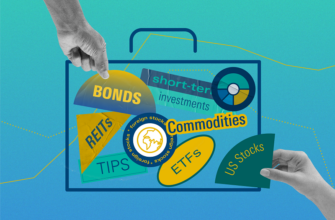Against the backdrop of a collapsed market, investing in stocks seems like a very attractive idea. Indeed, it is now possible to buy securities at a price much lower than it was before the market collapse. But investing in stocks is a long game which is important to understand. More importantly, you only need to invest in what you know. If you do not know what you are doing and buy shares anyhow, you will definitely fail.
A share is a security that gives its owner the right to participate in the management of the company and receive part of its profits. That is, the idea of a share in simple you buy a share in the company (a share both in the ownership of the company and in receiving part ofĺ its profits).

Why do companies issue shares
Unlike bonds (this is a direct loan to companies that must be returned), you do not need to return money for the purchase of shares, so this is in the hands of the founders themselves.Yes, the owners of shares are entitled to a portion of the company’s profits, or to a share of the company itself.
The issue and sale of shares gives a significant profit to the owners of the company (for example Facebook or Tinkoff Bank etc.)
Summing up the above, the reasons for the issue of the stock are as follows:
- Receiving funds for the development of the company, which do NOT need to be returned;
- Profit to the owners of the companies themselves.
Payment to shareholders
Payment to shareholders is made in the form of dividends.
Dividend – a part of the profit of a joint-stock company, which is distributed annually among shareholders after taxes, deductions for expansion of production, replenishment of reserves, payment of loans and interest on bonds, remuneration to directors.
What are the categories of shares
- Ordinary shares (JSC);
- Privileged (AP)

Ordinary shares (JSC) must account for at least 75 % of the authorized capital of the joint-stock company.They give the owner the following advantages:
- Ability to participate in voting at the shareholders meeting;
- Receive dividends from the company’s profits;
- Claim property in the event of liquidation of the company;
- Repurchase new shares when issued prior to placement on the stock market;
- Increase invested capital through dividends and changes in value.
- Procedure for payment of dividends on joint stock companies
Dividends on joint-stock companies are accrued and paid out of the part of the profit remaining after payments on the joint-stock company. At the same time, the Board of Directors may decide to refuse dividends to the shareholders of the joint-stock company, even if there is a profit. Dividends on ordinary shares are not guaranteed.

Upon liquidation of the company, holders of JSC have the right to part of the property, in proportion to their share in the authorized capital. In this case, the order of calculations is as follows:
- Tax authorities;
- Creditors;
- Bondholders and AP;
- The owners of the JSC.
If the company’s assets are distributed among the creditors of the first stages, the holders of the joint stock company will remain without compensation.

The disadvantages of owning a joint stock company are:
- Nominal participation in voting with a small block of shares;
- Dividends are paid only when the company makes a profit;
- In the event of liquidation, the owners of the joint-stock company are the creditors of the last stage;
- The shareholder does not have the right to demand the return of the invested funds from the company.
Preferred shares (AP) make up no more than 25% of the authorized capital of the company.
Although in this case there is one exception – the owners of the AP can take part in voting on the issue of liquidation or reorganization of the joint-stock company.
AP have the following advantages:
- Guaranteed dividends;
- Fixed amount of payments;
- Priority procedure for obtaining part of the property in the event of liquidation.
How to make money on shares
There are two ways to make money on promotions:
- Receiving dividends
- Revenue from value growth
It is important to understand that the source of payment of dividends is the company’s net profit,that is, the amount remaining after tax.
The rising cost
We earn on the difference between the cost of buying and selling – bought cheaper, sold more expensive. Like I said at the outset, it fairly well to understand this question before start to invest, because the rising cost of a stock depends on many factors. To know exactly what stock will be in day/month/year – impossible! It is only possible to assume something in this regard, but no “expert” can tell you for sure.
You can’t get rich fast
As we wrote in the beginning, the action is a long game! You need to invest in this investment tool for many years, constantly monitor the market, understand the nuances of this kind of investment, otherwise there is a great risk of losing money.
Of course, there is trading (just earning on the difference in the exchange rate),and for sure you have seen a lot of ads that promise you everything at once.
We can tell you with confidence that 95% of traders simply lose their money. Of course,you can earn money on this, and there are those who do it.But this is the result of long and constant training.
What will happen to the shares if the company goes bankrupt
As a rule, bankruptcy does not happen immediately. If the company starts to have problems – the shares will become cheaper, but they will not be reset, that is, you will not lose all the money, but only part of it.
The shares you buy belong to a real business and the business itself does not close in one day (especially if it is a large company).
Diversify
You can’t keep only one stock in your portfolio.Invest no more than 5-10% of your capital in one company.
The main risk is the fall in the value of shares. Be prepared for the fact that the stock can fall significantly in price.
Summing up
- Very high risk “in the short term”;
- Potentially high income when playing ” in the long run”;
- You can’t bet on all-in shares;
- An affordable tool
- Risk reduction through diversification (fill in your invest.portfolio of several companies shares);
- Receiving dividends (6-7% per year).








